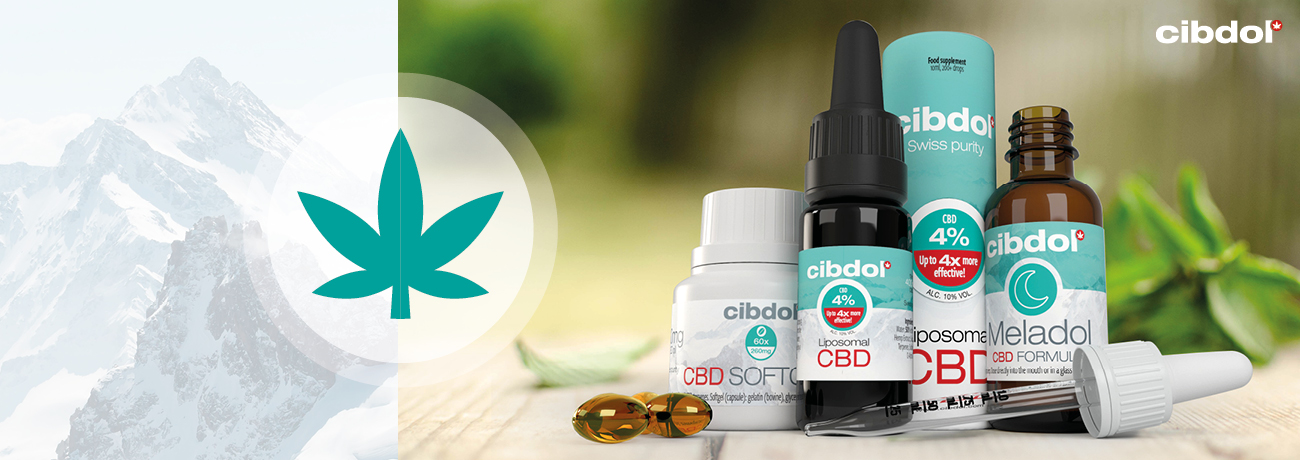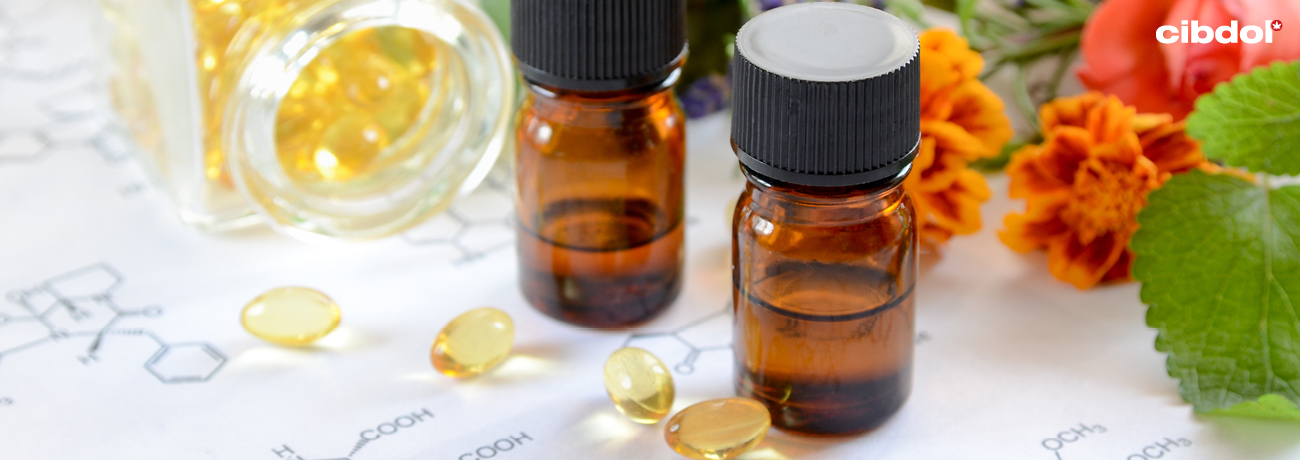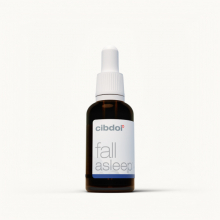How To Combine Different CBD Products

Not sure whether it's okay to mix different CBD products? Keep reading for everything you need to know about combining the wide range of CBD oils, capsules, and supplements available today.
Contents:
Why mix CBD products?
One of the primary appeals of CBD is that you can take it as an oil, tincture, capsule, apply it to the skin, and easily add it to food or drink. However, with every product and every variation in consumption, the strength, duration, and suitability varies. A highly concentrated CBD oil might be perfect for you in the morning, but what about a convenient alternative while you work?
People choose to mix CBD products so they can take advantage of the cannabinoid's versatile influence. It's important to remember that there is no ideal CBD product or perfect dose. Instead, CBD's potential stems from the way you can tailor it to your lifestyle and needs.
While many regard the compound's versatility as its greatest strength, it can also make balancing different CBD products challenging—especially if you're new to the cannabinoid. However, combining CBD products is simple, but to do so, you need to have an idea of the daily dose you are trying to achieve.
How to combine different CBD products
Finding your preferred CBD dose will vary according to your circumstances, why you've decided to use CBD, and the strength of the product. What's important to remember is to use milligrams as your unit of measurement when keeping track of CBD intake. Assuming you know roughly how much CBD you consume every day, we can use that information to help combine different products.
How to track your daily CBD intake
Imagine that your preferred daily intake of CBD is 17mg. To achieve that, you want to take CBD oil in the morning, a capsule at lunch, and a CBD supplement at night. The oil is easily mixed with your morning coffee, while the capsule is convenient at work. The added benefit of Meladol as your nightly CBD supplement supports a restful night's sleep.
The example above breaks down to:
• 4 drops of 5% CBD oil: 9.2mg
• Single 4% CBD capsule: 6.4mg
• Take 1 x 0.2 ml 15 minutes before sleep.
While variables will change from person to person, the principle remains the same. The key to combining different CBD products is to keep track of your daily total, and split that figure between the products you want to consume.Throughout the day, you will have consumed approximately 16.9mg of CBD. In this example, we are nearly spot on with our preferred dose.
Tips for combining CBD products

Aside from keeping track of your daily intake, there are a few handy tips to consider when combining different CBD products.
Always start with quality CBD
Not all CBD oils, capsules, supplements, or creams are created equal. It's essential you choose products from reputable manufacturers, especially when combining them. Trustworthy companies will publish details of their CBD extract so you know exactly what to expect. You'll be tracking your exact intake of CBD, so you need to be confident every product is as advertised.
Take your time with CBD
The advice about taking CBD “low and slow” applies whether you are only mixing CBD oils or trying a combination of every CBD product imaginable. The potential of CBD hinges, in part, on its interaction with the endocannabinoid system (ECS). Even though the ECS exists inside all of us, there are subtle differences between individuals, meaning no two CBD experiences are exactly alike.
Keep a record of which CBD products you're using
It can take a while to understand how you respond to CBD and how different products affect you. While you're finding your feet, it's crucial you keep track of what you're taking and when. Doing so will help you understand your ideal dose, and make the most of the influence CBD has to offer.
Can you mix CBD with essential oils?
CBD's versatility doesn't just extend to prepared products. Combining essential oils with CBD is becoming increasingly popular as users look to harness the holistic value of lavender, chamomile, and bergamot alongside their CBD regimen. Much like calculating your ideal dose, combining CBD with essential oils is a process unique to each user.
Individually, compounds in lavender have been linked to a healthy night's sleep[1], while bergamot oil may help when feeling nervous or pressured[2]. If you do plan on combining CBD with essential oils, we recommend talking to your doctor first about possible outcomes or interactions.
Should you try combining CBD products?
If you are new to CBD, it's highly recommended to try different products in isolation first, before combining them. In fact, even seasoned users should follow the same guidelines until they feel comfortable.
CBD oil taken sublingually will have a different impact on the body than a CBD capsule or CBD supplement. As such, you should always listen to your body and reduce your daily CBD target if you start to feel nauseous, fatigued, or lightheaded.
Ready to explore the different CBD products available? Browse the Cibdol store for an extensive selection of high-quality CBD oils, supplements, cosmetics, capsules, and creams. Or, if you still have questions about mixing different CBD products, why not search our CBD Encyclopedia to learn more about how each one works?
[1] Goel, N., Kim, H., & Lao, R. P. (2009). An Olfactory Stimulus Modifies Nighttime Sleep in Young Men and Women. Taylor & Francis. https://www.tandfonline.com/doi/abs/10.1080/07420520500263276?journalCode=icbi20 [Source]
[2] Navarra, M., Mannucci, C., Delbò, M., & Calapai, G. (2015). Citrus bergamia essential oil: from basic research to clinical application. NCBI. https://www.ncbi.nlm.nih.gov/pmc/articles/PMC4345801/ [Source]
[1] Goel, N., Kim, H., & Lao, R. P. (2009). An Olfactory Stimulus Modifies Nighttime Sleep in Young Men and Women. Taylor & Francis. https://www.tandfonline.com/doi/abs/10.1080/07420520500263276?journalCode=icbi20 [Source]
[2] Navarra, M., Mannucci, C., Delbò, M., & Calapai, G. (2015). Citrus bergamia essential oil: from basic research to clinical application. NCBI. https://www.ncbi.nlm.nih.gov/pmc/articles/PMC4345801/ [Source]








